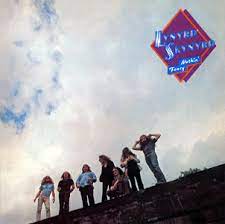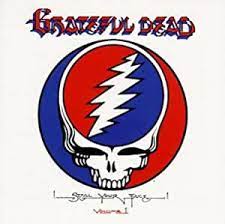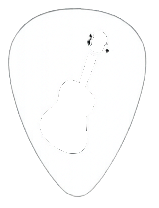🎸
Top 70s Southern Rock Songs
You Can Learn on Acoustic Guitar
If you love the gritty charm and blues-infused swagger of southern rock, this page is for you.
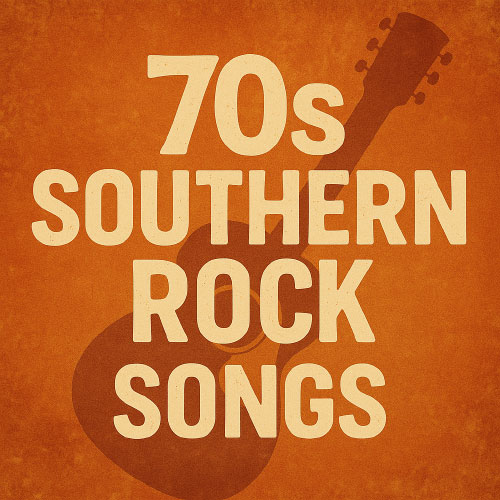
I’ve gathered the best 70s southern rock songs that sound great on acoustic guitar.
Whether you're a fan of 38 Special’s anthemic riffs, ZZ Top’s Texas twang, or the soulful slide work of Elvin Bishop and Bonnie Raitt, you’ll find something here to sink your teeth into.
Each lesson comes with a free chord sheet, a video demo, and the option to purchase the full step-by-step tutorial.
Currently my 70s section is being rebuilt but all links work here.
🎸 Overview Video -
“Watch This Preview of My
70s Southern Rock Songs”
70s Southern Rock Songs List
1. 38 Special --- Caught Up In You, Fade To Blue, Hold On Loosely, If I'd Been The One, Somebody Like You2. Bonnie Raitt --- Papa Come Quick
3. Elvin Bishop --- I Fooled Around And Fell In Love, Sure Feels Good
4. Little Feat --- Dixie Chicken, Willin
5. Molly Hatchet --- Junkin City
6. Wet Willie --- Keep On Smiling, Leona
7. ZZ Top --- She's A Heartbreaker, Tube Snake Boogie
1. 38 Special Songs - Learn To Play On Guitar
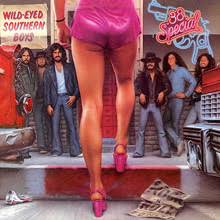
Caught Up In You was the breakout hit from 38 Special’s 1982 album Special Forces, and it remains one of their most recognizable songs.
Blending the band’s Southern rock roots with a polished 80s arena-rock sound, the track showcased a more radio-friendly direction. It quickly climbed the charts, reaching #10 on the Billboard Hot 100 and hitting #1 on the U.S. Mainstream Rock chart—marking 38 Special’s first Top 10 hit.
The song features lead vocals by Don Barnes and was co-written by Barnes and guitarist Jeff Carlisi, along with Survivor’s Jim Peterik and Frankie Sullivan.
Chords And Strumming
I play a capo 2nd fret here in standard tuning and of course this one has multiple rhythm patterns including all down strokes, a down down up down up down up and some chops throughout. Yes some lead in here with the chords D, Bm, A, G, Gbm, D/Gb, Em, A/Db and a D dim.
Guitar Lesson Details - (chords & lyrics sheet incl with lesson)
Back To Song List
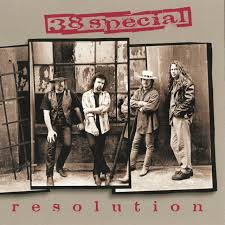
Fade To Blue marked a later-but-still impactful entry in 38 Special’s catalog, appearing on their 1997 studio album Resolution.
This track leaned into a pop-rock direction, featuring a subtle mandolin riff that softened the band’s signature Southern rock and while not a blockbuster single, it did climb to number 33 on Billboard’s Mainstream Rock chart, demonstrating the band’s sustained presence in rock radio well into the 90s
Chords And Strumming
The chords here are Em, D, C, G6, Am7, A7 and an F played in standard tuning with some lead. I play a root up down up for the most part with a few quick shuffles in this one.
Guitar Lesson Details - (chords & lyrics sheet incl with lesson)
Back To Song List
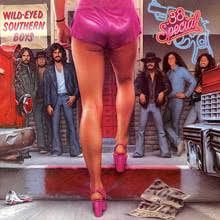
Hold On Loosely is a signature track from their 1981 album Wild‑Eyed Southern Boys album from 1981. This tune perfectly blends Southern rock swagger with catchy hooks.
The opening riff nods to The Cars, while the chorus drives home the band’s melodic hard-rock charm.
Chords And Strumming
I play a standard tuning here with just a few riffs and no lead. The chords are E, E/Eb, D, A/Db, C, D, Gbm, B, A, D/A and a B7 with playing mainly down strokes for rhythm and a few places where you'll play an up and down pattern in the bridge.
Guitar Lesson Details - (chords & lyrics sheet incl with lesson)
Back To Song List
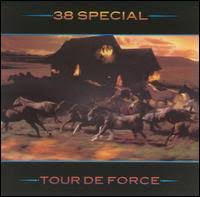
If I'd Been The One is a standout track from their 1983 album Tour de Force and showcases 38 Special's ability to blend emotional depth with Southern rock swagger.
The song soared to #19 on the U.S. Billboard Hot 100 and captured the top spot on the Mainstream Rock Airplay.
Co-written by band members Don Barnes and Jeff Carlisi alongside Larry Steele and Donnie Van Zant—and produced collaboratively with Rodney Mills—it reflects a tighter, more polished AOR style.
Chords And Strumming
This one is played with a steady down up down up rhythm pattern and with just a few riffs but no lead. In standard tuning play the chords G, Em, C, D, B7 and an Am.
Guitar Lesson Details - (chords & lyrics sheet incl with lesson)
Back To Song List
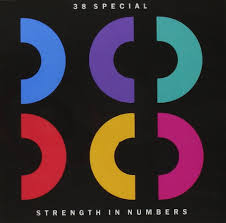
Somebody Like You ... surfaced in 1986 as the second single from 38 Special’s seventh studio album, Strength in Numbers.
The track climbed to #48 on the Billboard Hot 100 and peaked at #6 on the U.S. Mainstream Rock chart.
Strength in Numbers marked a late-career comeback for 38 Special, earning gold certification and reminding fans of their prowess with memorable hooks and polished production.
Chords And Strumming
This one is played in standard tuning and has just a few riffs blended into the rhythm for a lead break. There are two rhythm patterns in this one consisting of s steady down up down up and all down strokes. For chords you'll need a G, D/Gb, C, D, Em and a C/G.
Guitar Lesson Details - (chords & lyrics sheet incl with lesson)
Back To Song List
2. Bonnie Raitt Songs - Learn To Play On Guitar
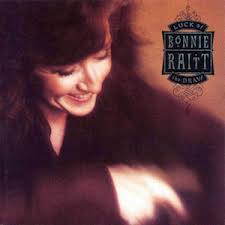
Papa Come Quick appears on Bonnie Raitt’s Grammy-winning 1991 album Luck of the Draw. While it wasn’t released as a single, the song stands out for its uptempo rockabilly flair and storytelling charm, co-written by Billy Vera, Chip Taylor, and Manion.
The album itself was a massive success, selling over 7 million copies and producing several hit singles like “Something to Talk About.” Though “Papa Come Quick” didn’t chart, it remains a fan favorite for its playful energy and showcases Bonnie’s versatility beyond her signature ballads and bluesy numbers.
The track helps round out Luck of the Draw as a dynamic, genre-blending release during the peak of her commercial resurgence.
Chords And Strumming
This song has a blues vibe to it in standard tuning with the chords E, A and B7 with some picking riffs throughout the song. You'll be playing a root down root up down up rhythm pattern.
Guitar Lesson Details - (chords & lyrics sheet incl with lesson)
Back To Song List
3. Elvin Bishop Songs - Learn To Play On Guitar
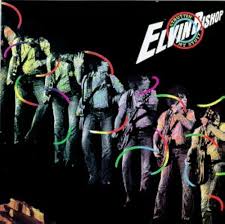
I Fooled Around And Fell In Love was released in 1975 on Elvin Bishop’s album Struttin’ My Stuff. Interestingly, while Bishop is a skilled guitarist and bandleader, the song's lead vocals were performed by Mickey Thomas, a background singer in Bishop’s band at the time—who later became famous with Jefferson Starship.
The single became Bishop’s biggest hit, reaching #3 on the Billboard Hot 100 in 1976 and going gold. Its smooth blend of Southern rock and blue-eyed soul helped the track endure as a staple of ‘70s soft rock playlists.
It’s widely considered a one-hit wonder, but it remains one of the era’s most iconic love songs.
Chords And Strumming
This one is in standard tuning with a down down down up down up rhythm pattern in a chop format is the best way I can describe it. Some lead required in standard tuning with the chords D, Gbm, C, G, A, Em, Em/D#, Em/D and an A7.
Guitar Lesson Details - (chords & lyrics sheet incl with lesson)
Back To Song List
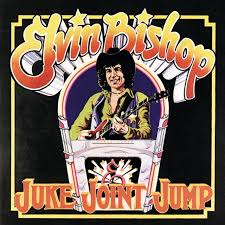
Sure Feels Good appears on Elvin Bishop’s 1975 album Juke Joint Jump, a record that blends blues, boogie, and Southern rock with Bishop’s signature laid-back charm.
Though the song didn’t chart as a single, it showcases Bishop’s joyful vocal style and guitar work, often backed by his band’s tight, funky grooves. The track contributed to the album’s overall appeal, helping solidify Bishop’s reputation as a rootsy, good-time performer.
Juke Joint Jump was released between two of Bishop’s biggest albums — Let It Flow (1974) and Struttin’ My Stuff (1976) — placing it squarely in his creative prime.
Chords And Strumming
This one has a steady down up down up shuffle rhythm with a groove kinda vibe to it. Played in standard tuning and with now lead you'll need an A, Dbm, Bm, D, E, Gbm, G and a G# for chords.
Guitar Lesson Details - (chords & lyrics sheet incl with lesson)
Back To Song List
4. Little Feat Songs - Learn To Play On Guitar
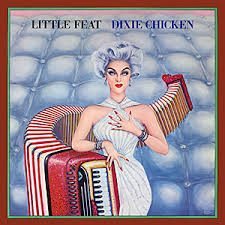
Dixie Chicken is the signature title track from Little Feat’s 1973 album Dixie Chicken, released January 25 on Warner Bros.
The song was issued as a single in March 1973 in the U.S. (backed with “Lafayette Railroad”) and later in the UK. The album is often regarded as their landmark release, as it marked a key lineup shift (adding Paul Barrere, Sam Clayton, and Kenny Gradney) and leaned more into New Orleans funk/R&B grooves.
Though Dixie Chicken didn’t make a huge commercial splash initially, the title track became Little Feat’s best-known anthem and a staple of their live performances.
Chords And Strumming
You can play this one with the three chords A, D and E in standard tuning and some lead required. You'll play a down up up down up rhythm pattern in this one.
Guitar Lesson Details - (chords & lyrics sheet incl with lesson)
Back To Song List
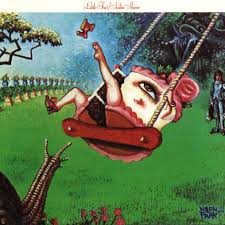
Willin was written by Lowell George and first appeared on Little Feat’s 1971 self-titled debut album.
Because George had injured his hand, Ry Cooder was recruited to play slide guitar on that initial recording. The band re-recorded “Willin’” at a slower, more iconic tempo for their 1972 Sailin’ Shoes album.
Though it never charted as a single, “Willin’” became Little Feat’s signature tune, beloved for its road‑worn lyrical imagery and soulful, understated style.
Chords And Strumming
A laid back vibe here with a root down up root up down up rhythm pattern in standard tuning. No lead but a few riffs here with the chords G, C, D, Em, G6 and an Am,
Guitar Lesson Details - (chords & lyrics sheet incl with lesson)
Back To Song List
5. Molly Hatchet - Learn To Play On Guitar
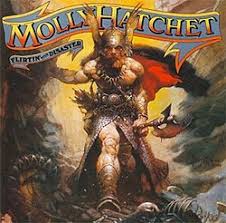
Jukin City is featured on Molly Hatchet’s acclaimed 1979 album Flirtin’ with Disaster.
Though not issued as a major charting single, it remains a beloved deep cut among fans for its gritty southern rock groove and storytelling.
The Flirtin’ with Disaster album itself reached #19 on the Billboard Top LPs & Tape chart and later earned platinum status.
For guitar players, “Jukin’ City” offers classic southern rock chord progressions and an opportunity to explore slide or blues‑tinged leads in a compact, energetic arrangement.
Chords And Strumming
This one is played with a steady down up down up rhythm but with a few chops throughout. Some lead required in standard tuning but a bit of a high one in this original key. You'll need the chords D, Em, G and a C.
Guitar Lesson Details - (chords & lyrics sheet incl with lesson)
Back To Song List
6. Wet Willie - Learn To Play On Guitar
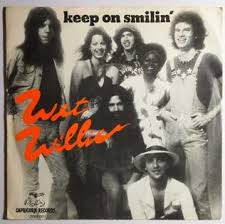
Keep On Smiling ... the bands most well-known song, was released in 1974 as part of their album of the same name.
This upbeat, feel-good track became their biggest hit, reaching No. 10 on the Billboard Hot 100 chart. The song's positive message of perseverance and optimism, coupled with Jimmy Hall's soulful lead vocals, resonated strongly with listeners.
Its success helped propel the "Keep On Smilin'" album to No. 37 on the Billboard 200 chart. While Wet Willie never achieved the same level of commercial success with their subsequent releases, "Keep On Smiling" secured their place in the pantheon of 1970s Southern rock bands and remains their signature song, still played on classic rock radio stations today.
Chords And Strumming
This one has a steady shuffle pattern with a few notes blended in standard tuning with the chords D, A and G and a small lead break.
Guitar Lesson Details - (chords & lyrics sheet incl with lesson)
Back To Song List
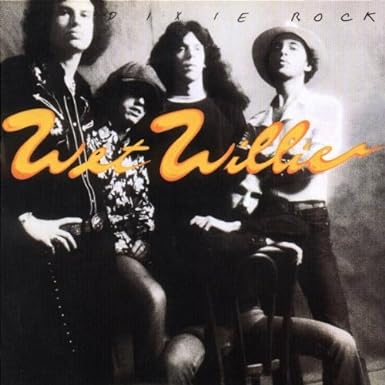
Leona is a single from the 1975 Wet Willie album Dixie Rock.
This song was released as a single and made it to #69 on the US rock charts in 1975.
Chords And Strumming
This is a fast paced steady up and down rhythm pattern with a bit of lead in the middle of the song. In standard tuning, the chords you'll need are G, C, A, D and an Em.
Guitar Lesson Details - (chords & lyrics sheet incl with lesson)
Back To Song List
7. ZZ Top Songs

She's A Heartbreaker is a track from ZZ Top’s 1976 Tejas album, released by London Records.
It was penned by band members Billy Gibbons, Dusty Hill, and Frank Beard. The song clocks in around 3:02 in length and has become a solid deep cut in their catalog — often featured in fan playlists though it wasn’t a major hit single.
While it didn’t climb high on mainstream charts, Tejas itself reached #17 on the Billboard LP chart and showed the band exploring more melodic and country-inflected sounds on that era’s work.
Chords And Strumming
The rhythm here can be played with all down strokes or with a combo down up down up pattern in standard tuning. Some lead required and comes with a key change as well. The chords required are D, C, G, A, E, B and an E7.
Guitar Lesson Details - (chords & lyrics sheet incl with lesson)
Back To Song List
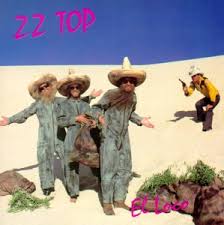
Tube Snake Boogie was released in 1981 as a single from ZZ Top’s El Loco album.
It became a hit on rock radio, climbing to #4 on the Billboard Mainstream Rock chart. The song was written by Billy Gibbons, Dusty Hill, and Frank Beard, and features the band’s signature blend of blues‑rock energy and witty lyrical double entendre.
In the liner notes of ZZ Top’s 1992 Greatest Hits, the band mentions that “tube snake” can refer playfully to a surfboard — though many fans debate its sexual innuend
The track is produced by Bill Ham and recorded/mixed by Terry Manning, and it remains a lively staple in their live sets decades later.
Chords And Strumming
Only three chords in this one but quite a bit of lead playing required. You'll need an E, A and B7 played with down strokes and in standard tuning.
Guitar Lesson Details - (chords & lyrics sheet incl with lesson)
Back To Song List
Southern rock from the 1970s blended blues, country, and hard rock into a powerful sound that still resonates today.
Whether you're jamming along to the gritty edge of ZZ Top, the soulful groove of Little Feat, or the heartfelt playing of Bonnie Raitt, these songs offer plenty of fun and flavor on acoustic guitar.
If you’ve enjoyed exploring these lessons, be sure to check out our other 70s rock collections for even more iconic riffs and rhythms. Keep strumming — and keep that southern spirit alive in every chord you play.
If you liked this 70s Southern rock songs page you might also like ... (click images)
Acoustic Versions Of Rock Songs
